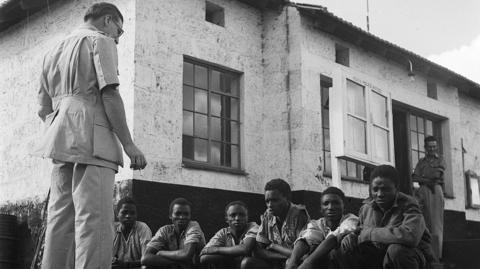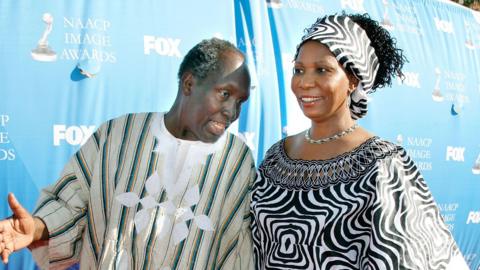Ngũgĩ wa Thiong'o, who has died aged 87, was a titan of modern African literature - a storyteller who refused to be bound by jail, exile and illness.
His work spanned roughly six decades, primarily documenting the transformation of his country - Kenya - from a colonial subject to a democracy.
Ngũgĩ was tipped to win the Nobel Prize for Literature countless times, leaving fans dismayed each time the medal slipped through his fingers.
He will be remembered not only as a Nobel-worthy writer, but also as a fierce proponent of literature written in native African languages.
Ngũgĩ was born James Thiong’o Ngũgĩ in 1938, when Kenya was under British colonial rule. He grew up in the town of Limuru among a large family of low-income agricultural workers.
His parents scrimped and saved to pay for his tuition at Alliance, a boarding school run by British missionaries.
In an interview, Ngũgĩ recalled returning home from Alliance at the end of term to find his entire village had been razed by the colonial authorities.
His family members were among the hundreds and thousands forced to live in detention camps during a crackdown on the Mau Mau, a movement of independence fighters.
The Mau Mau uprising, which lasted from 1952 to 1960, touched Ngũgĩ's life in numerous, devastating ways.
In one of the most crushing, Ngũgĩ's brother, Gitogo, was fatally shot in the back for refusing to comply with a British soldier's command.
Gitogo had not heard the command because he was deaf.


